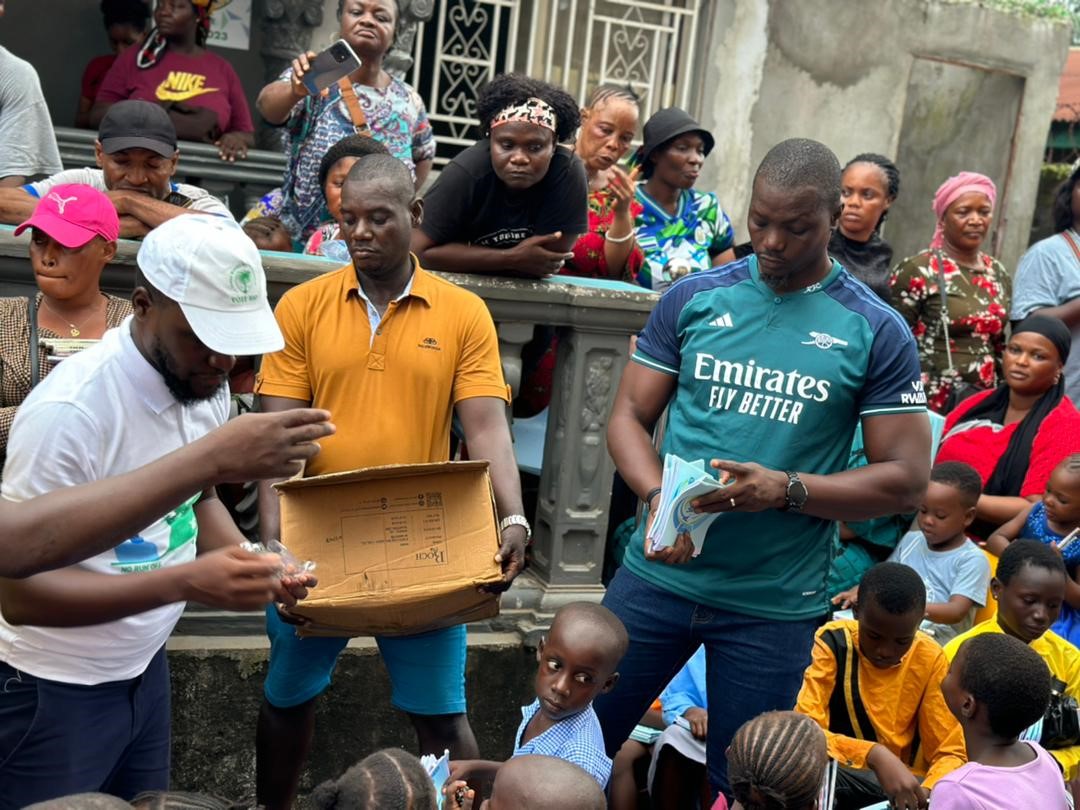BY FATMATA BUNDU
232NEWS, FREETOWN
Always Work With Others (AWWO) Green Movement has launched the first phase of donation of school learning materials to primary schools in the East end of Freetown. AWWO Green Movement aim is to support His Excellency Retired Brigadier Dr. Julius Maada Bio’s vision to change the tale of education for vulnerable children across the country.
Mr. Umar Fuad Bawoh, the National Coordinator of the AWWO Green Movement donated over two thousand five hundred (2,500) Books and thousands of other relevant school learning materials to hundreds of pupils.
The Keynote Speaker Honourable Isata Daramy applauded the historical benchmark of Mr. Umar Fuad Bawoh for taking such responsibility to compliment the presidential developmental campaign of President Bio. She noted that thousands of pupils have benefitted from the donation from the founder Mr. Umar Fuad Bawoh.
The founder Mr. Umar Faud Bawoh, pointed that he wanted to draw attention to issues affecting students in the country. He said Education is the key to breaking the cycle of poverty and fostering socio economic development, yet countless children in impoverished areas are deprived of this fundamental right.
He continued by saying necessary tools that students require to reach their full potential such as learning materials and other essential resources. This lack of access hinders their ability to acquire knowledge that involves in critical thinking, and developing necessary skills for their future endeavors.
The founder, Mr. Umar Fuad Bawoh said a child is eager to learn and explore the world, being faced with the reality of not having the necessary materials to support their education.
He said they are denied the opportunity to gain knowledge and pursue their dreams. This situation not only perpetuates the cycle of poverty but also hampers our society’s potential for growth and progress.
The founder believe that they can make a difference by coming together as a community, bridge the gap and ensure that all children have access to learning materials irrespective of their socio-economic background. This effort requires collaboration from various stakeholders, including governments, educational institutions, businesses, Non-Governmental Organizations and individuals.
Mr. Bawoh stated that once they have a clear understanding of the needs, they could work towards establishing partnerships with publishers, bookstores and organizations that can provide learning materials at affordable rates. This approach not only gives them access to learning materials but also helps address the issue of limited access to physical books.
He concluded that lack of access to learning materials in poor communities is an issue that demands immediate attention and that they cannot stand idly while countless children are denied their right to the free quality education. He called on them join hands and support the President initiatives that aims to provide learning materials to pupils in impoverished areas.

